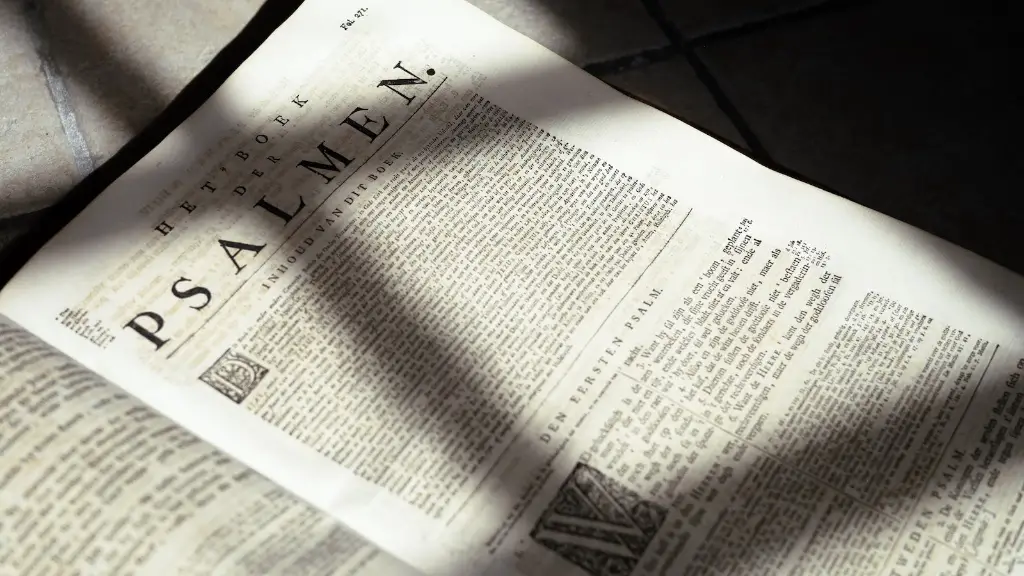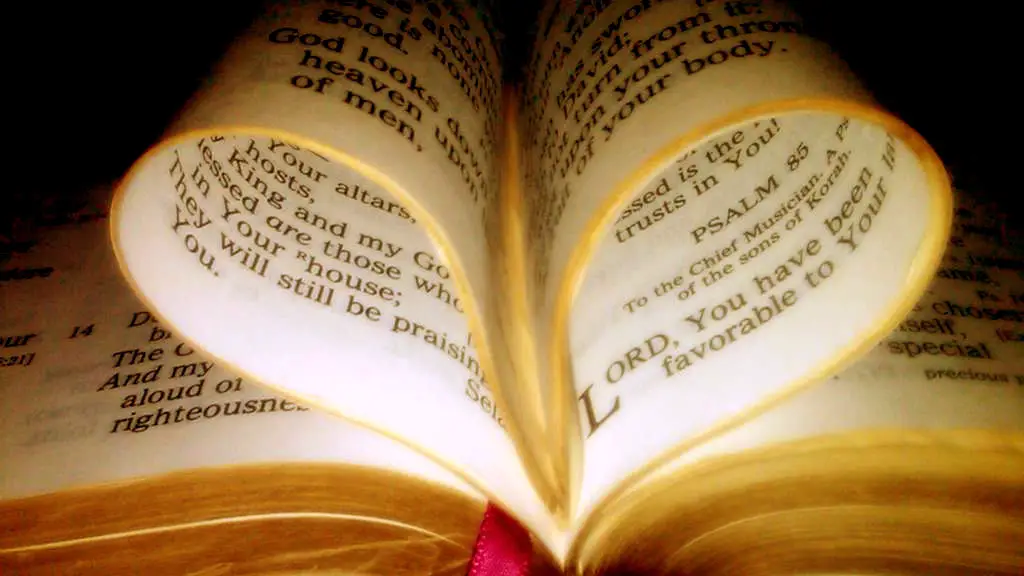Evidences From Relevant Scripture
The Bible does not mention dragons directly, but there are several mentions of creatures that could be interpreted as dragons. In Isaiah 43:20, the prophet talks about a “sea monster” or a “whale” that would be under his authority: “The beasts of the field will honor me, dragons and ostriches, for I give water in the wilderness and rivers in the desert, to give drink to my chosen people.” This verse implies a creature like a sea dragon that was living in the waters. The prophet Ezekiel also mentions a creature like a dragon in Ezekiel 29:3: “Behold, I am against you, Pharaoh king of Egypt, the great dragon that is in the midst of his rivers.” In these verses, a “dragon” is used as a symbol for a powerful, tyrannical king such as Pharaoh.
The most notable dragon in the Bible is the “leviathan”, a creature with scales and multiple heads that is mentioned in Job 40-41. This creature is believed to be a sea dragon, although some commentators have argued that it is a crocodile or whale. The Leviathan was seen as a great enemy of God and the Old Testament contains several passages talking about its power and destruction. For example, in Psalm 74:14, the psalmist says: “You crushed the heads of Leviathan and gave him as food to the creatures of the desert”. This passage implies that Leviathan was defeated by God and its remains used as food for other creatures.
Interpreting Dragons Symbolically
A closer look at the biblical passages that mention dragons reveals that these creatures are often used symbolically. In several passages, dragons are used as metaphors for powerful and oppressive political forces (such as the Pharaoh of Egypt) or for the chaotic forces of evil and destruction in the world. In other cases, dragons are used to represent countries, tribes and other groups that oppose the people of Israel. For example, in Psalm 44:19, the psalmist says: “Yet you [God] have broken the head of Leviathan; you have given him as food to the people of the wilderness”. In this verse, Leviathan is used as a symbol for a foreign enemy of the people of Israel.
This symbolic use of dragons also appears in the New Testament. In Revelation 12:3-4, a “great red dragon” is used as a symbol for Satan and the forces of evil in the world. In this passage, the dragon is described as having “seven heads and ten horns”, a description which is similar to that of the “Leviathan” in the Old Testament.
Is Dragons A Representation of God?
Although dragons are used in the Bible primarily as symbols for evil and destruction, there is evidence that they can also be seen as a representation of God’s power and mercy. This is especially true in the book of Revelation, where a dragon is described as protecting God’s people in Revelation 12:7: “Then war broke out in heaven. Michael and his angels fought against the dragon, and the dragon and his angels fought back”. This verse implies that the “dragon” is actually a representation of God who is using its power to protect God’s people.
Additionally, in Job 41:1-2, God is described as the one “who can draw out Leviathan with a fishhook”. This passage suggests that the “dragon” in the Bible is a symbol for God’s ability to overcome the chaotic forces of evil. Therefore, although it is not used directly as a representation of God in the Bible, there is evidence that dragons can be seen as a symbol of God’s power and protection.
How Dragons Appear In Christianity
The image of dragons has been present in Christianity since the early days of the faith and they are still seen today as powerful symbols of God’s protection and power. In medieval Europe, dragons were often associated with pagan gods and were seen as forces of evil that had to be defeated by Christian knights. Today, Christian churches and organizations often use the image of dragons to symbolize faith and courage in the face of evil.
Additionally, dragons are also popular in Christian art and literature. The most famous example is the legend of Saint George and the Dragon, which tells the story of a knight who fought and defeated a dragon in order to save a princess. This tale is still popular in many parts of the world and it is seen as a symbol of courage and faith in the face of evil.
Dragons in Ancient Mythology
The image of dragons has been present in many cultures throughout History, from the ancient Greeks to the Chinese. In ancient mythology, dragons often appear as powerful creatures that represent chaos and destruction. They usually fight against gods and heroes, who have to use their power and wisdom to defeat the dragons and restore balance in the world.
In some cultures, the dragon is also seen as a symbol of fertility and life. In the ancient Near East, for example, dragons were seen as great life-giving powers that could bring rain and make the land fertile. This is similar to the view of dragons in Christianity, where they are seen as powerful symbols of God’s protection and mercy.
Dragons In Pop Culture
Today, dragons remain popular in many forms of popular culture, from fantasy books and movies to video games and collectible card games. In these works, dragons are often portrayed as powerful and noble creatures, often with magical abilities that can be used to either help or harm humans. They are often seen as wise creatures who can offer advice and guidance, or as terrifying monsters that can be overcome with courage and skill.
The popularity of dragons in pop culture has led many people to become interested in dragons and the symbolism that they represent. In the West, dragons are often seen as symbols of strength, courage and protection, while in the East they are seen as symbols of wisdom and prosperity. No matter where they come from, dragons continue to fascinate and inspire people all over the world.
The Impact of Dragons in History and Today
The image of dragons has had a major impact on human culture throughout history, from ancient mythology to modern popular culture. In the Bible, dragons are often used as symbols of powerful forces of evil that need to be overcome by faith and courage. In ancient mythology, dragons often symbolize chaos and destruction that have to be defeated by gods and heroes. In modern popular culture, dragons are often seen as wise and noble creatures that have a certain level of magical power and can offer guidance and protection.
Today, the image of dragons continues to be an important part of many cultures around the world. The legends and stories of dragons help to shape our concept of courage and faith, and they serve as continual reminders of the power of faith and courage in the face of evil. No matter where they come from, dragons continue to fascinate and inspire people all over the world.
Dragon Beliefs Around the World
The concept of dragons has been present in many cultures throughout history, and it has evolved in different ways in different societies. In some cultures, dragons are seen as powerful, destructive forces that must be feared and respected. In others, they are seen as wise and noble creatures who can offer protection and guidance.
The belief in dragons around the world has had a major impact on culture. In some cultures, dragons have been used as symbols of power and strength, while in others they have been seen as symbols of wisdom and prosperity. The idea of dragons has also been used to explain natural phenomena and to explain the power of human will and courage in the face of adversity. No matter where they come from, dragons continue to fascinate and inspire people all over the world.
Conclusion
Overall, the Bible does not mention dragons directly, but there are several mentions of creatures that could be interpreted as dragons. In most cases, dragons are used as symbols for powerful and oppressive forces of evil. However, there is also some evidence that dragons can be seen as a representation of God’s power and protection.
Today, the image of dragons is still popular in many forms of popular culture, from fantasy books and movies to video games and collectible card games. The belief in dragons has had a major impact on human culture throughout history, from ancient mythology to modern popular culture, and it continues to fascinate and inspire people all over the world.


